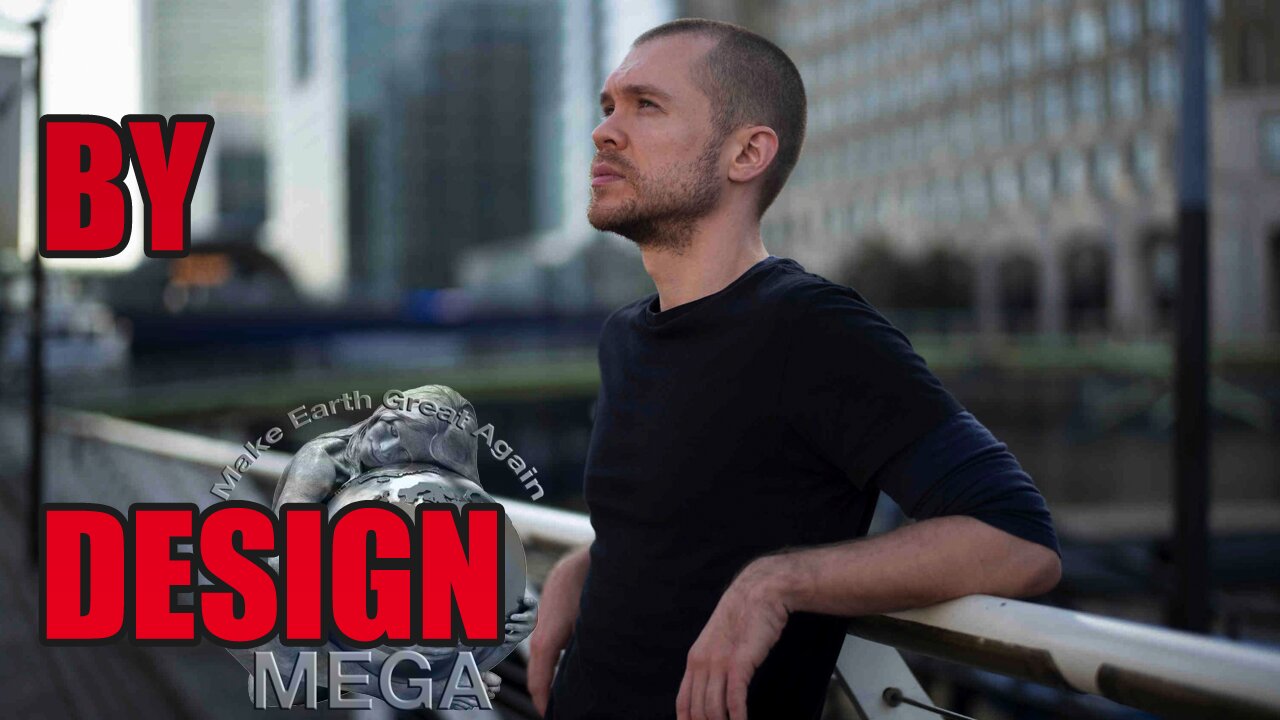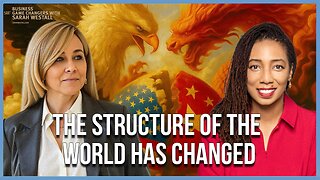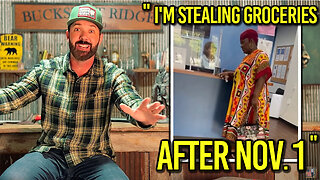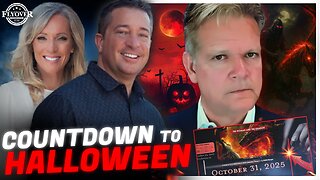Premium Only Content

Why growing inequality is robbing young people of their futures, according to Gary Stevenson | Waarom groeiende ongelijkheid jongeren berooft van hun toekomst volgens Gary Stevenson - Partly Dutch spoken with English subtitles
"If the American people ever allow private banks to control the issue of their currency, first by inflation, then by deflation, the banks and corporations that will grow up around them will deprive the people of all property until their children wake up homeless on the continent their Fathers conquered.... I believe that banking institutions are more dangerous to our liberties than standing armies.... The issuing power should be taken from the banks and restored to the people, to whom it properly belongs." ~ Thomas Jefferson
.
According to London-based former banker and math genius Gary Stevenson, we are in the midst of a major economic crisis. But not one accompanied by a sudden shock like a stock market crash. "I think an economic crisis can look like house prices that just keep going up," says Stevenson.
.
What makes the former currency trader interesting is his background: Stevenson is one of the few in London's financial world who comes from a working-class family and sees things that upper-class boys struggle to see. Ordinary young people, for example, Stevenson's friends and family, who appear to have very little purchasing power at all. Or ever-longer waiting lists for public healthcare. Rising food and energy prices. Rising childcare costs. Less access to stable employment. Unaffordable housing for a younger generation. And so on.
.
While the very richest are amassing ever more wealth (on the stock market and through real estate), the cost of living for the poorest 90 percent of society is rising. According to Stevenson, the crisis isn't one of shrinkage, but of growing inequality. While academic Thomas Piketty—that other inequality warner—enlightened the world with the economic formula "r is greater than g" (the return on capital has long exceeded economic growth), the raw Stevenson is clearer. "Take your pick: either much higher taxes for the very rich, or your grandchildren will be extremely poor. There are no other options."
.
DUTCH DESCRIPTION
Volgens de Londense ex-bankier en wiskunde-genie Gary Stevenson zitten we middenin een grote economische crisis. Maar niet eentje die gepaard gaat met een plotselinge schok zoals een beurscrash. ‘Ik denk dat een economische crisis eruit kan zien als huizenprijzen die maar blijven stijgen,’ aldus Stevenson.
.
Wat de oud-valutahandelaar interessant maakt, is zijn achtergrond: Stevenson komt als een van de weinigen in de Londense financiële wereld uit een arbeidersgezin en ziet dingen die de upperclass jongens maar moeilijk zien. Gewone jonge mensen bijvoorbeeld, vrienden en familie van Stevenson, die helemaal niet zoveel koopkracht blijken te hebben. Of steeds langere wachtlijsten in de publieke gezondheidszorg. Stijgende voedsel- en energieprijzen. Stijgende kosten voor de kinderopvang. Minder toegang tot stabiel werk. Onbetaalbare huizen voor een jongere generatie. Enzovoorts.
.
Terwijl de allerrijksten steeds meer vermogen vergaren (op de beurs en via vastgoed), stijgt het gewone levensonderhoud voor de armste 90 procent van de samenleving. De crisis is volgens Stevenson er dan ook niet een van krimp, maar van groeiende ongelijkheid. Waar academicus Thomas Piketty - die andere ongelijkheidswaarschuwer - de wereld verlichtte met de economische formule ‘r is groter dan g’ (het rendement op vermogen is al geruime tijd hoger is dan de economische groei), is de rauwe Stevenson duidelijker. ‘Kies maar: of veel hogere belastingen voor de allerrijksten, of je kleinkinderen zullen extreem arm zijn. Er zijn geen andere opties.’
-
 LIVE
LIVE
Sarah Westall
3 hours agoStructure of the World has Changed and Getting Back to Basics w/ Stacy Washington
482 watching -
 6:34
6:34
Buddy Brown
5 hours ago $0.28 earnedWatch What Happens When WELFARE QUEENS Get Denied FOOD STAMPS! | Buddy Brown
4492 -
 LIVE
LIVE
Drew Hernandez
12 hours agoCHARLIE KIRK TRIAL JUDGE ISSUES GAG ORDER & U.S. MARSHAL ILLEGAL ALIEN SHOOTOUT?
941 watching -
 UPCOMING
UPCOMING
DLDAfterDark
43 minutes agoIs Glock Anti 2A?? Glocks Terrible Recent Decisions & More
-
 LIVE
LIVE
tminnzy
1 hour agoLAST REMAINING BLACK OPS 6 PLAYER 🦁
159 watching -
 LIVE
LIVE
Side Scrollers Podcast
2 days ago🔴SIDE SCROLLERS FUND-A-THON🔴DAY 2🔴100% REVENUE HELPS CHANGE CULTURE!
1,099 watching -
 LIVE
LIVE
Flyover Conservatives
20 hours agoURGENT UPDATE: Why Halloween Matters This Year— October 24-31 w/ Bo Polny | FOC Show
622 watching -
 LIVE
LIVE
This is the Ray Gaming
21 minutes agoI'm All Out Of Tacos | Rumble Premium Creator
15 watching -
 LIVE
LIVE
SpartakusLIVE
3 hours agoHE'S BACK || The #1 KING of Content has ARRIVED
175 watching -
 LIVE
LIVE
Spartan
4 hours agoOMiT Spartan | Graduated college woohoo and last stream before worlds
8 watching